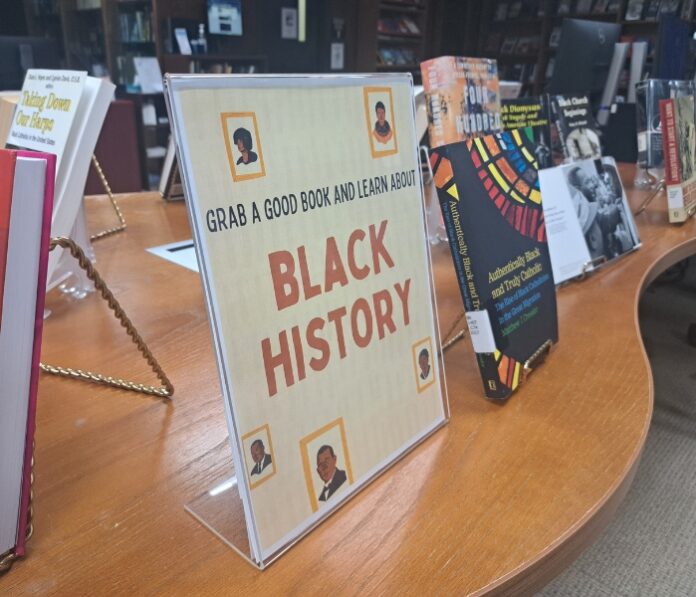The month of February has rolled around again, the month of Black History Month: a time to remember, honor, commemorate and celebrate a major community in American history and culture.
In 1926, Carter G. Woodson founded “Negro History Week” in February, coinciding with the birthdays of President Abraham Lincoln and abolitionist Frederick Douglass, which was already an established time of celebrating within the Black community.
From there, the rest is history. The week of commemoration grew into a month, and in 1976, during the events of the American bicentennial, President Gerald Ford officially recognized Black History Month.
At the University of Dallas, there is a vibrant, though maybe small, Black community present. Some have been generous to share some of their thoughts on UD, the Black presence here and Black History Month.
Dr. William L. Cody, Associate Professor, Biology Department, and well-respected faculty member, graciously shared his comments: “My great-great-grandparents on my mother’s and father’s side were enslaved in Tennessee and Arkansas, respectively. I was raised Baptist. I now consider myself to be a non-denominational Christian, which is Baptist for: ‘not that type of Baptist.’
“Everyone of us at UD is participating in a very intentional and rigorous liberal arts education that provides for intellectual, emotional and spiritual growth. I think there are some at the university who could use a periodic reminder that every member of the UD community elected to take part in that. A little less suspicion about the presence of us non-Catholics would be appreciated.
“I think the education we offer is for everyone, regardless of race, religion or economic status. We all bring unique voices and perspectives, and that is critical in a place where so many young people are forming their views on the world.
“Organizations like Student Leaders for Racial Solidarity help ensure that the ~3% of the student body that is Black feels a sense of belonging and provides opportunities for cross-cultural engagement. There are many seldom told stories that are highlighted during Black History Month.
“I encourage everyone to take the opportunity to learn more about American history from a perspective that is often not fully explored. Students are the driving force here. Students always find ways to share their full, authentic self to those that respect them.
“Black History Month is an opportunity to reflect on the significant contributions African-Americans have made to this country, dating back to before its founding. It serves as both a source of pride and inspiration for old and young generations alike, and a warning to future generations on complacency in the face of injustice. It is an opportunity for everyone, regardless of race, to engage in discussions about human dignity and our obligation to fight for and protect it.”
David Semga, freshman business major, is a native of Cameroon, and he expressed much appreciation for the efforts of the Black Americans in the past for clearing the way for progress today. “Black History Month to me is everything. Appreciating the efforts and the struggles it took for African Americans to get equal rights in this country and being forever grateful for their efforts.”
He also spoke on some of the troubles of being a Black student at UD, specifically with his endeavors to do a production of “A Raisin in the Sun” by Lorraine Hasberry. The issue he has come across is that the Black demographic, especially of actors, is not the ideal size for a show like Hasberry’s, which is about a Black family in Chicago attempting to raise their financial status in face of the social environment of the mid-1900s.
As Semga points out, this seems to be a running issue at UD: “There are definitely clubs and stuff but I think that’s it for integrating Black cultures, which is fine but not too inclusive.”
Karlas Avalos, Director of the Office of Civil Rights and Title IX, speaks on the historical significance of Black History Month and UD’s contributions throughout the year: “Black History Month is a time to highlight the amazing things Black people have done throughout history that may not have made the pages of traditional history books. Before the internet, it was the only opportunity for students to learn this part of history.
“UD seems to make an effort to celebrate and recognize different cultures through various events which bring together students from different backgrounds. I’ve also noticed that there are sometimes food events, lectures or celebrations centered around different cultures, which help create an inclusive environment.
“The music and activities shared during these events allow for a mix of cultures and perspectives. While Catholic traditions are central, I think the university does a good job of incorporating diversity in its programming to help students connect and learn from one another.”
